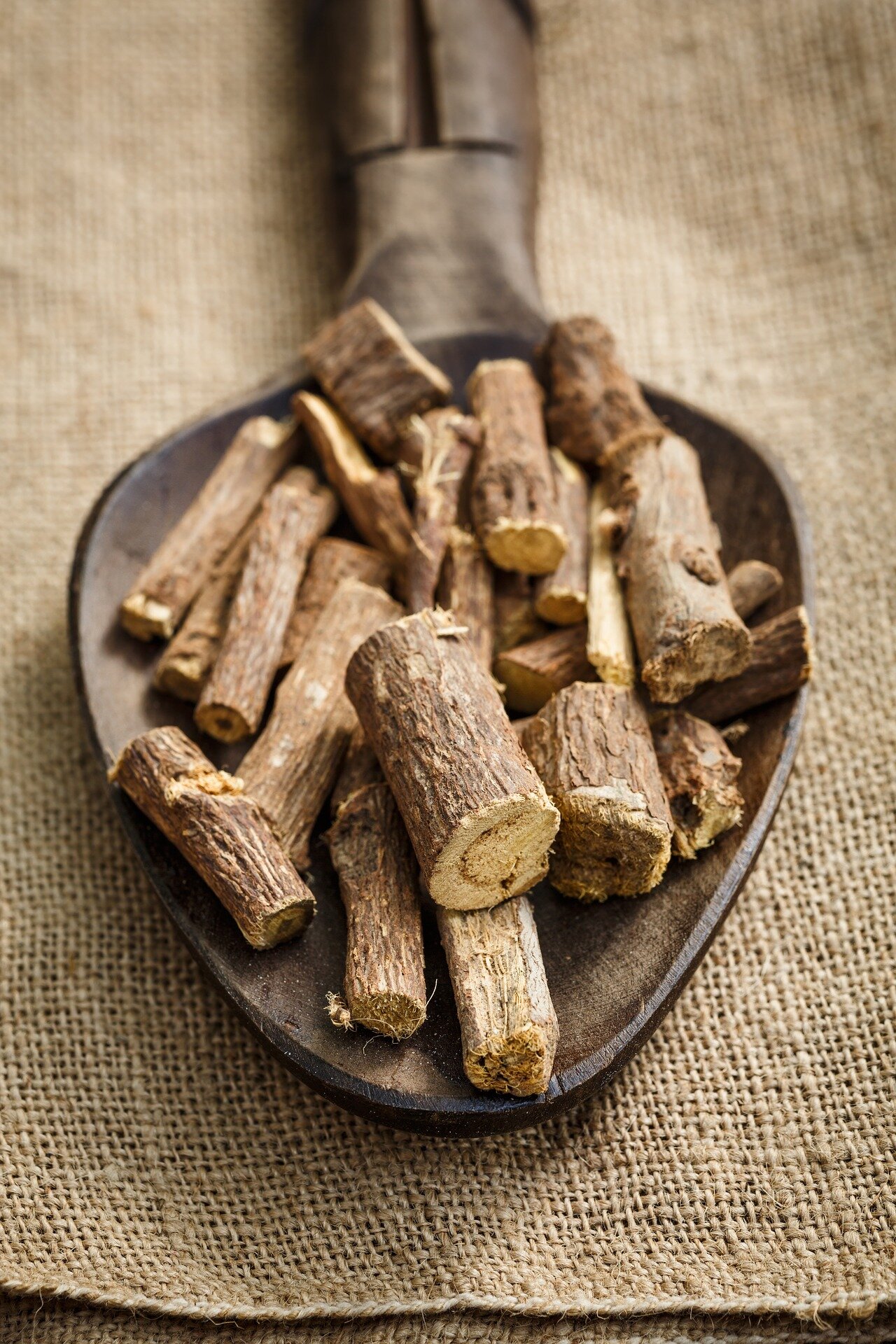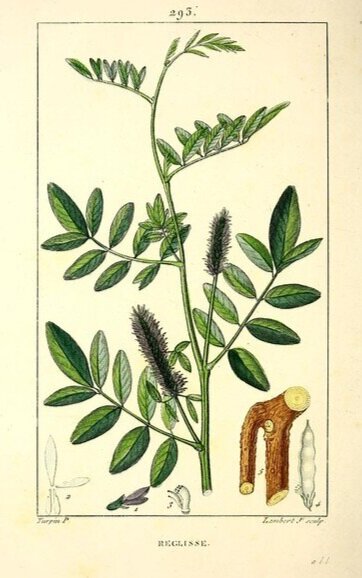Liquorice
A sweet survivor
Liquorice is the common name of Glycyrrhiza glabra (Greek glykys, for "sweet", and rhiza, for "root"), a perennial, herbaceous plant growing up to 1.5 meters high with an extensive root system and abundant purple and blue blossoms.
It loves well-drained sandy soil and grows best in dry riverbeds and deep valleys with full sun. It can be found in Western and Central Asia and in the Mediterranean region. Due to a long history of cultivation, its current presence in the wild is so widespread that it seldom needs to be farmed today.
It produces an aromatic flavouring, reminiscent of fennel or aniseed, that is extracted from its dark brown roots. The extracts are fifty times sweeter than sugar cane and have a more than 5,000-year history as a traditional remedy in both Eastern and Western medicine. With anti-inflammatory properties, liquorice has been used as a treatment for heartburn, stomach ulcers, bronchitis and sore throat.
Today, liquorice root can be found in many different products from candies to teas. Liquorice is mostly used as a flavouring in food and beverages. Martin Bauer Group, a UEBT member since 2014, is sourcing liquorice from its supplier, Geoflower located in Georgia. Georgia is a small country sitting at the intersection of Eastern Europe and Western Asia in in the Caucasus region. The country is almost 40% high mountains, and its liquorice is collected from the wild, with local people gathering the roots from nutrient-rich soil alongside the Alazani River in the eastern part of the country.
The liquorice root system is so robust that the roots extend several meters down and several meters wide, ensuring its survival. Local collectors treat the plants sparingly by only harvesting the top layer, ensuring that the liquorice has plenty of time to regenerate – which can take as long as four years. Markus Wehr, Head of Strategic Procurement, Herbs and Fruits and mabagrown at Martin Bauer Group explains that, "we treat nature’s treasures carefully to ensure they are still around for subsequent generations. We consider the needs and natural environment of the wild plants our collectors harvest before devising a moderate plan for their use that ensures their long-term survival.”
Headquartered in Germany, Martin Bauer Group procures more than 200 botanicals from more than 80 countries and five continents. Since 2015, Martin Bauer Group has been certified under the UEBT/UTZ Herbal Tea Programme (UEBT/Rainforest Alliance Herbs & Spices Programme from January 2021) using its own mabagrown® standard. The liquorice from Geoflower is used primarily in botanical sweeteners for the beverage industry but also as botanical powders used in animal nutrition.
Martin Bauer also works to respect wild collectors' way of life by ensuring good working conditions and fair pay. Gocha Dzneladze, Chief Operating Officer of GeoFlower explains that, "collectors have a crucial role to play in conserving biodiversity. We have to have face to face contact with them and speak their language." To this end, Geoflower has implemented 60 social projects in their sourcing regions, including ‘communications centers’ at central sites near collection areas to facilitate in-person discussions with the people who collect the plants. At these centers, local collectors can use the internet, have a cup of tea, and speak with Geoflower representatives daily.
Both companies are also ensuring that collectors receive fair prices for the roots they collect, to reduce local people’s financial stress and to prevent migration of families away from the mountain forests and their traditional ways of life.






